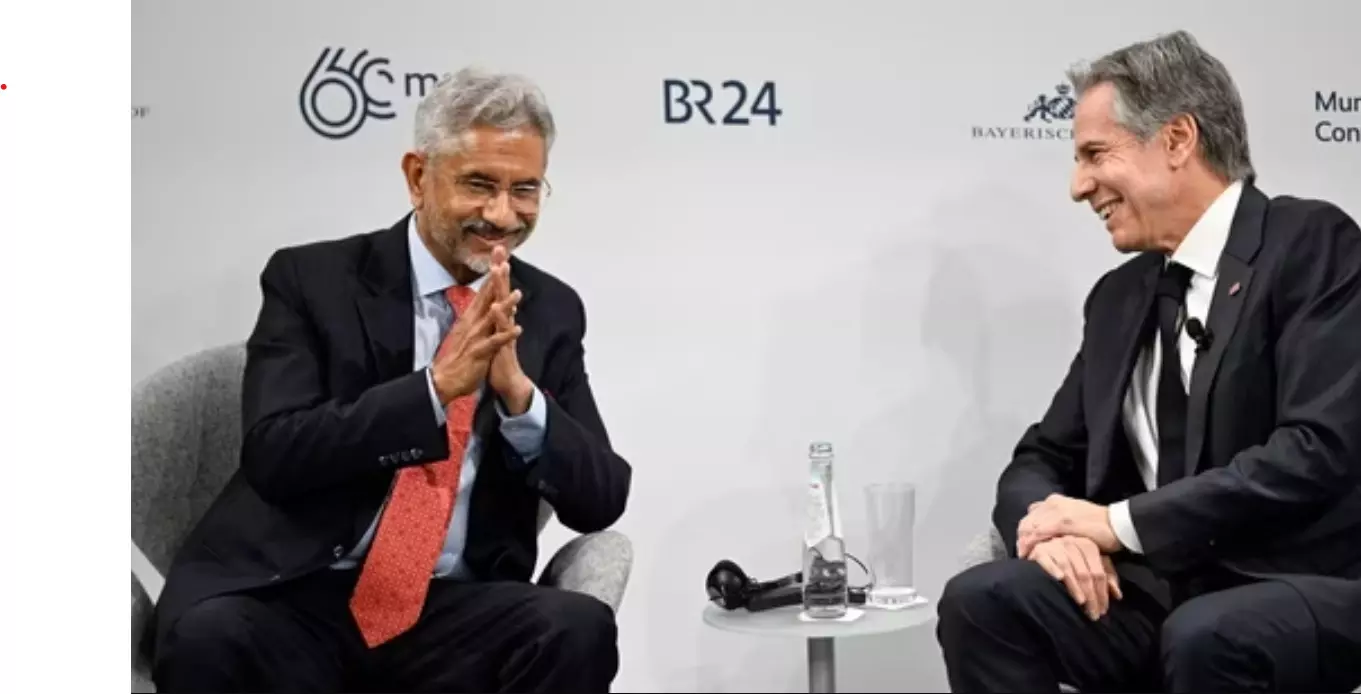Well-defined contours!
India’s assertion of its ‘non-Western’ identity despite holding strong ties with the West is a positive culmination of the evolutionary engagement through historical, cultural, and civilisational exchanges

Gracing a panel discussion at the annual Munich Security Conference on February 18, 2024, along with the US Secretary of State, Antony Blinken, and the German Foreign Minister, Annalena Baerbock, the Indian External Affairs Minister Subrahmanyam Jaishankar said that he would “characterise India as a country which is non-West but which has an extremely strong relation with the Western countries, getting better by the days.” Jaishankar's affirmation distinguishing “between being non-West and anti-West” evokes interest on cultural and civilisational underpinnings of Non-West India's engagement with the West.
The non-West is a space that culturally distinguishes itself from the West with respective geographic specificities. The non-Western world, like the West itself, is not a homogenous spatial category. It has a diversity of units, inhabitants and facets. Representing one such facet, India civilisationally engages with the West. While culture is somebody's thought and action carried over from one generation to another, civilisation is his/her cumulative ideational and material accomplishments. In consequence, the spontaneous exchange of ideas and needs define civilisational engagement.
India's engagement with the West on a civilisational line is celebrated in William James Durant's two consecutive books: The Case for India and Story of Civilisation. In 1930, the American author published ‘The Case for India’ while he was on a visit to India as part of collecting data for the Story of Civilisation. He wrote, "India was the mother-land of our race, and Sanskrit the mother of Europe's languages, that she was the mother of our philosophy, mother, through the Arabs, of much of our mathematics, mother, through Buddha, of the ideals embodied in the Christianity, mother, through the village community, of self-government and democracy. Mother India is in many ways the mother of us all." Durant substantiates his reverent description of India's relations with the West in the first volume of Story of Civilisation.
In a chequered course of history, the enlightening engagement among civilisations has been, however, strained by many disruptive forces, more prominently proselytisation, consumerism and mechanisation. The consequent imperial domination has created global binary spaces of prosperity and deprivation. The geo-economic fault line between the Global North versus the Global South on the one hand and the geo-cultural rift between the West and the East on the other are living proofs. The ideational and material exchanges characterise ancient civilisational accomplishments. The subsequent time span ranging from medieval age to contemporary period has witnessed the expansive growth of subjugating tendencies, which have been manifested in imperialism, colonialism, settler-colonialism and racism. Resultantly, the spontaneous exchange of ideas and needs give way to enslavement of human lives and livelihood.
The dehumanisation of civilisational engagement receives emotional yet apt expression in the words of South African statesman Desmond Tutu, when he said, "When the missionaries came to Africa they had the Bible and we had the land. They said 'Let us pray.' We closed our eyes. When we opened them we had the Bible and they had the land." Walter C Opello and Stephen J Rosow also share similar reflections in their (2004) work The Nation-State and Global Order: A Historical Introduction to Contemporary Politics. They write, "European states constructed an interconnected global order by means of conquest, trade, religious conversion and diplomacy." This asymmetric encounter has been reversed by gradual civilisational march including initial political decolonisation, later on economic globalisation and the ongoing cultural affirmation.
Significantly, when Indian Prime Minister Narendra Modi visited South Africa in 2016, he proclaimed, “Through the spirit of Vasudhaiva Kutumbakam and Ubuntu, our relationship has been a story of resolve, determination, justice and the excellence of human endeavour.” While Vasudhaiva Kutumbakam conveys the idea of the world as one family, Ubuntu expresses that "I am because you are." Essentially, the non-Western approach persuades us to interact with the world as a physically as well as an emotionally shared space.
As things unfold further, on a historic occasion of India taking upon herself G20 presidency for 2022-23, Prime Minister Modi declared, “India's G20 Presidency will work to promote this universal sense of oneness. Hence the theme — 'One Earth, One Family, One Future.'” The G20 Presidential declaration for universal oneness witnessed inclusion of the African Union in the most effective global grouping of emerging and emerged powers, enhancing G20's operational reach and humane potential. Such a meaningful global progress in material and ideational sense, indeed, manages to fructify with the engagement between Non-West India and the West on cultural and civilisational terms.
The writer teaches in the Department of African Studies, Faculty of Social Sciences, University of Delhi. Views expressed are personal



